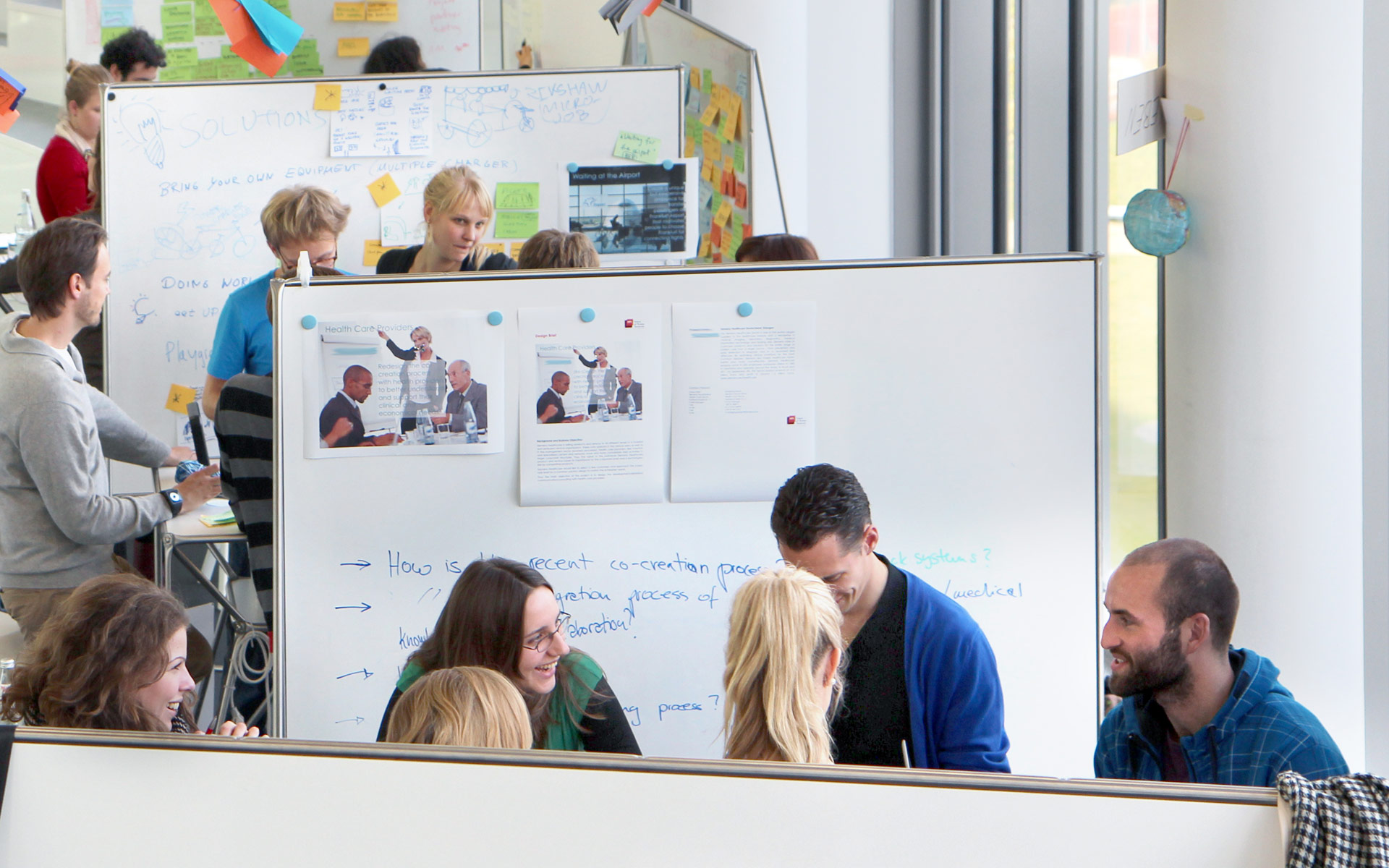Over the past years, a powerful methodology for innovation has emerged that integrates human, business and technical factors: “Design Thinking.” The HPI-Stanford Design Thinking Research Program, funded by the 'Hasso-Plattner-Förderstiftung' (Hasso Plattner Trust), seeks to engage multidisciplinary research teams with divergent backgrounds in science, engineering, design, and the humanities to scientifically investigate the phenomena of innovation in its many holistic dimensions.
Researchers in the Program study the complex interaction between members of multi-disciplinary teams challenged to deliver design innovations related to wicked problems. An important feature of the domain is the need for creative collaboration across spatial, temporal, and cultural boundaries. In the context of disciplinary diversity it is investigated how Design Thinking meshes with traditional engineering and management approaches, specifically, why the structure of successful design teams differs substantially from traditional corporate team structures.

